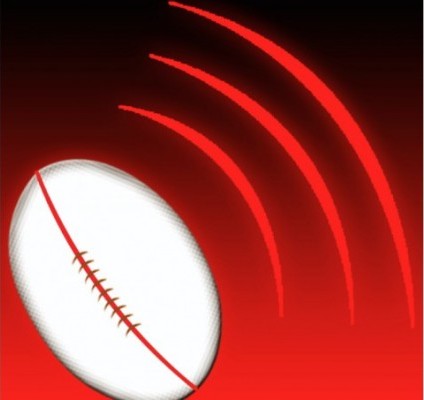We're Proud of Rugby Sportsmanship, So Let's Practice It
We're Proud of Rugby Sportsmanship, So Let's Practice It
I’ve been spending a lot of time this spring and summer attending and writing about rugby tournaments for young people, and I think it’s time for a refresher course in making rugby proud.
Let’s be our better selves.
Players
Every now and then the players start to get chest-thumpy and say or do something they shouldn’t. Almost always, the situation happens when Team A thinks it’s all going to go their way … and then it doesn’t. Angry, scared of losing, and maybe a little bit embarrassed, the players start to act out. Team B responds …
It happens. It happens a lot, in fact, but usually gets stopped quickly. In my opinion, the front line of keeping everything chill and sportsmanlike are the players on the field. If you get a great leader who jumps in and keeps things cool, you should let him. Coaches and fans? They’re often just gasoline on the fire. The best they can do is watch their body language and their language in general and stay positive, letting the leaders sort it out.
For girls, it’s not the braggadocio, it’s late hits on tries. For some reason, this remains a problem in the girls game. A defender knows the opposition is going to score, and maybe she wants to show she’s still trying. The player touches down, and an instant later the defender lands on her, or comes rocketing in and hits the scorer with her foot or knee. If we can stop that in girls rugby, we’d stop a lot of injuries.
Having said that, I have seen many, many more examples of outstanding sportsmanship - players helping each other up, opposition players congratulating someone on a good play, sincere post-game handshakes. That’s the game we love, right?
On The Sidelines
One tournament director told me once that the most difficult people to deal with are with the youngest teams. Arguments among coaches and parents - some making you wonder if they’ll come to blows - are more common for U14s than U18s. Why? Well it might be that more of the parents are new to the game. It might be that the parents are still harboring hopes that rugby will be a ticket to a college scholarship or some other opportunity.
It might be that a coach has found some success, and forgets that when he or she comes up against another good team, then he or she might lose.
I don’t know … do I have to say it’s just a game? Yes, well, it is just a game. Your young kids need to go to school and study and enjoy life, because life gets harder as you get older. Maybe don’t burden them with having to worry about the fans and the coaches losing their composure.
Teams
This was, for me, one of the saddest stories of the spring. Teams gathered for an all-star event, played on Day One, and then, with placement games schedules for Day Two, Team A found out that their opponents, Team B, had packed up and gone home.
Why had Team B left? Because they lost. They came to the first day of competition, didn’t do as well as they could, and bailed. This was a travesty because:
a) Team A had spent money and time and resources to go to a tournament to play as many tough all-star games as they could. The players were denied that competition.
b) The players on Team B had spent time and effort to be seen as high-level competitors. Even in losing, they could have shown enough to be considered by a college coach or a national team coach. Now they are seen as quitters.
c) This completely misses the point of all-star play. The point is not that you win. The chances are, you won’t win. The chances are, your players who think they’re the s#!t will discover that they have a lot to learn, need to work hard, be smarter, be more precise, and play more as a team. That’s the point! We all get better when we challenge ourselves, find ourselves wanting, and we improve.
The message from Team B’s coaches was … if we can’t win without working our absolute hardest, then let’s quit, and take away the competitive opportunity from the other team.
I have made many of these mistakes as a coach. I have complained to refs and acted all put-out and said things to players I wish I could take back. I also have moments about which I am proud. Of those, perhaps one was in 2008 when I took my club team (As and Bs) to a select-side tournament, and told the parents beforehand, we have six games to play, and I want you to be prepared to lose all six.
Our job, I said, was to make sure the players felt supported, prepared, and enjoyed their participation while staying realistic.
In the end we finished 4-1-1 overall, which was nice, but I think the big victory was taking the pressure out of that moment. We weren’t going to live or die over every play, every slight, every mistake. We were there to learn and have fun, and that approach colored everything we did.
That’s the approach coaches on the youth level have to have. You have to give fans and parents something to root for, to strive for, just as you do for players (saying "don't yell" isn't enough - give them someone you want the to do). You have to empower and admonish your leaders to BE leaders, and let them know you expect them to keep the team on an even keel.
And if it all goes to crap and you lose by 50, remember, we’re rugby players. Get up, dust yourself off, and go again. There is no excuse for doing anything else.












